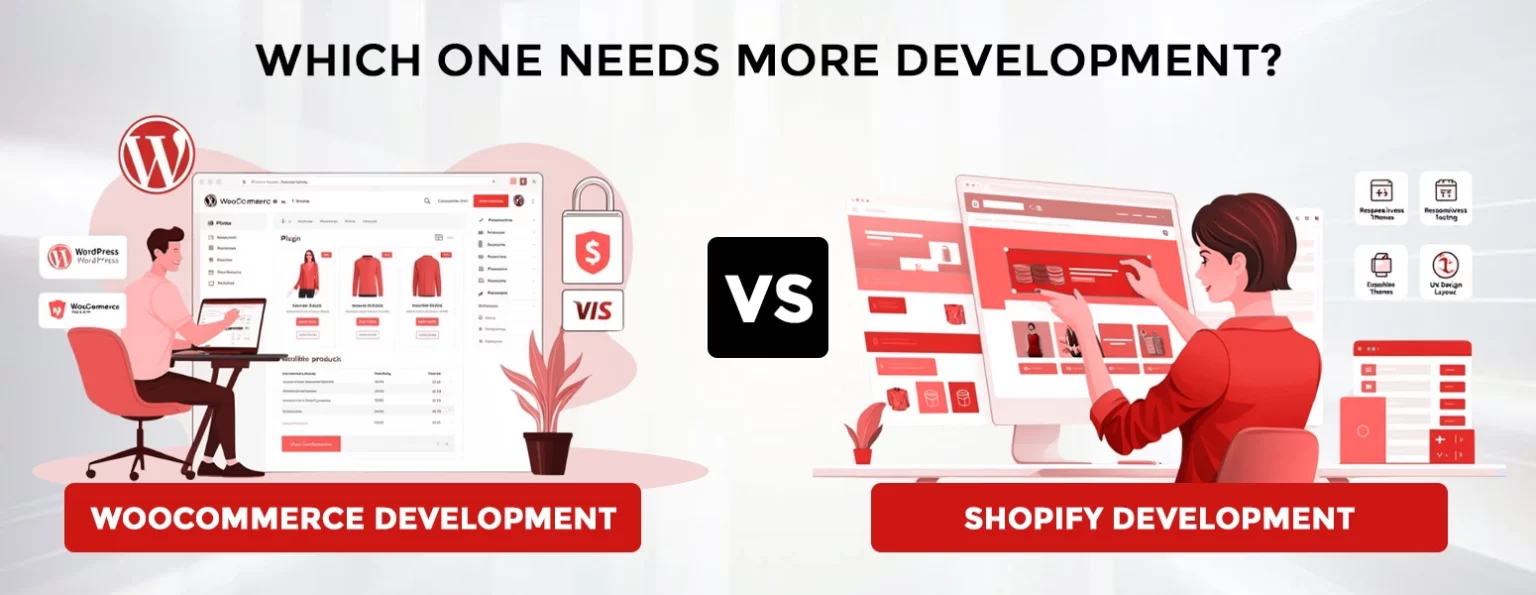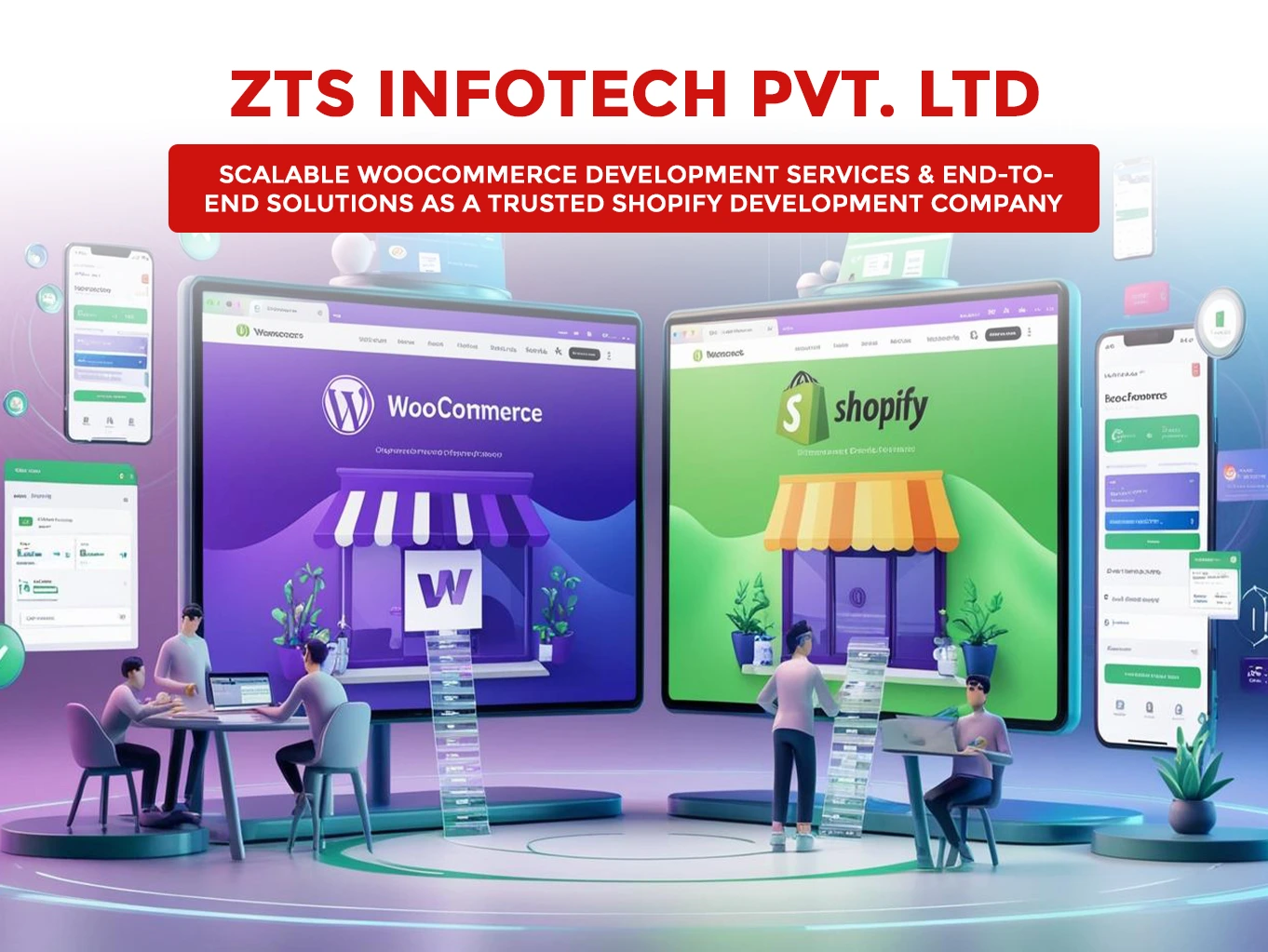In 2025, the e-commerce battlefield is more dynamic than ever, with businesses racing to deliver faster, smarter, and more personalized shopping experiences. At the heart of this evolution lie two major contenders: WooCommerce and Shopify, each powering millions of online stores worldwide. But while both platforms have made significant advancements in recent years, the question remains: which one is truly future-ready, and which still needs further refinement to meet the demands of modern digital commerce?

Choosing between WooCommerce and Shopify today is no longer just about preferences in design or functionality. It’s about scalability, integration, user experience, and long-term growth. Entrepreneurs, marketers, and developers alike are closely examining how each platform stacks up in terms of innovation and adaptability. This blog dives deep into the strengths of both systems, uncovers areas that still require development, and helps you decide which platform is better suited for your business goals in 2025.
Discovering WooCommerce: Flexibility with Growing Demands
WooCommerce, which is built on WordPress, remains a popular choice among businesses seeking customization. Its open-source nature provides WooCommerce website developers with the freedom to modify and tailor features extensively. This is ideal for brands that want full control over their online store’s design, functionality, and integrations. With the rising importance of headless commerce and advanced analytics, WooCommerce has made strides in improving performance and API capabilities. However, many argue that WooCommerce still lags in ease of use for non-technical users and requires more robust security frameworks by default.
From a development perspective, WooCommerce would benefit from more intuitive dashboards, simplified plugin management, and stronger built-in SEO tools. For small businesses without a dedicated developer, the learning curve can be steep, even though WooCommerce development services can bridge that gap.
Unleashing the Shopify Model: Streamlined, But Still Growing
Shopify, on the other hand, dominates the space for businesses looking for a plug-and-play solution. It’s known for its ease of use, speed, and managed hosting. A reliable Shopify development company can help businesses get up and running quickly with professionally designed themes and seamless payment integration.
That said, Shopify’s limitations in custom development often frustrate growing businesses. In 2025, more brands are seeking unique shopping experiences. Although Shopify has expanded its ecosystem and improved its backend features, developers still call for more backend flexibility, multi-store capabilities, and native support for complex product catalogs. Moreover, while its app ecosystem is robust, high dependency on third-party apps can lead to bloated costs and inconsistent performance if not managed properly.
Which One Needs More Development: WooCommerce or Shopify?
Both platforms are evolving to meet new e-commerce trends, such as mobile-first design, voice commerce, and AI-driven personalization. However, WooCommerce still requires more attention when it comes to user-friendliness, performance optimization, and security protocols. Conversely, Shopify needs further development in backend flexibility and advanced customization options.

So, which platform needs more development? The answer depends on your business goals. If you’re a developer or brand aiming for maximum customization, WooCommerce still has gaps to fill. If you’re a retailer seeking unique functionality beyond what Shopify offers out-of-the-box, the platform may feel restrictive unless you work closely with a seasoned Shopify developer.
Final Thoughts: Choosing the Right Partner Is Important
Whether you lean towards WooCommerce for its flexibility or Shopify for its simplicity, success depends on choosing the right development partner. ZTS Infotech Pvt. Ltd. brings expertise in both platforms, offering scalable WooCommerce development services and end-to-end solutions as a trusted Shopify development company. With a deep understanding of eCommerce trends in 2025 and a commitment to innovation, we ensure your online store performs, converts, and grows seamlessly, regardless of the platform you choose.
Contact Us Today! USA:
USA:  India:
India: 
